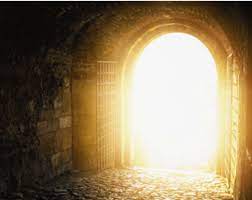My Journey to Bitachon and Peace

Strong 8k brings an ultra-HD IPTV experience to your living room and your pocket.
For years, I searched for peace in all the places the world told me to look—career success, relationships, productivity hacks, even wellness routines. I tried yoga in the mornings, green juices at lunch, and journaling at night. And while these practices brought temporary calm, something was always missing.
It wasn’t until I discovered Bitachon, the Jewish path of trusting in Hashem (God), that I began to understand what real peace feels like. Not fleeting quiet, but lasting inner security. Not absence of problems, but the presence of confidence, clarity, and divine partnership.
This is the story of my journey—how I moved from anxiety to serenity, not by gaining control, but by learning to let go and trust. I invite you to explore this spiritual path with me and consider how daily Bitachon might lead you to your own peace.
What Is Bitachon and Why Did I Need It?
The Restlessness Beneath the Surface
I was the type of person who always needed a plan—and a backup plan. I feared uncertainty and dreaded change. Every unexpected twist—missed opportunities, financial pressure, delayed outcomes—filled me with anxiety. Even when life was “fine,” I lived with a low-level fear: What if it all falls apart tomorrow?
I looked confident on the outside, but inside I was exhausted.
It wasn’t until a friend gently said, “Have you ever looked into Bitachon?” that I started to awaken to a deeper possibility. I had heard the word before—Bitachon means trust in Hashem—but I hadn’t connected it to daily life.
Bitachon Defined
Bitachon isn’t passive hope. It’s active trust. It means knowing that everything—yes, everything—that happens is part of Hashem’s plan for your ultimate good. It’s not optimism. It’s not “toxic positivity.” It’s a calm, grounded trust that whatever is, is from a place of divine love and infinite wisdom.
Rabbi Avigdor Miller zt”l once said that a person with true Bitachon walks through life unafraid, because they know that Hashem is leading them—step by step.
This was the peace I wanted. The peace that doesn’t depend on circumstances.
The First Steps: Introducing Daily Bitachon
Learning to Let Go
My first challenge was admitting I wasn’t in control. That sounds simple, but for someone who prides themselves on “managing everything,” it was deeply humbling.
Each morning, instead of diving into emails or news, I began my day with a short prayer:
“Hashem, today I trust that You are guiding everything. Even what I don’t understand.”
It felt awkward at first. But slowly, the ritual softened my heart.
Bitachon in Real Life
Daily Bitachon doesn’t mean you stop working hard or making plans. It means you do your best—and then release the outcome.
I remember applying for a big job promotion. I prepped, prayed, and waited. When I didn’t get it, I was disappointed—but for the first time, I wasn’t devastated. I felt calm. I genuinely believed: If this door closed, it’s because Hashem has a better one for me.
That’s Bitachon—not just trusting Hashem in theory, but in real-time decisions and emotions.
Writing a Bitachon Journal
One practical tool that changed everything for me was a “Bitachon Journal.”
Each night, I wrote down:
One moment I saw Hashem’s hand in my day
One challenge I’m trusting Him with
One pasuk (verse) of Bitachon that inspired me
Example entry:
Today I missed my bus—but I got to help someone lost at the station. Maybe that’s why.
I trust Hashem to help me prepare calmly for tomorrow’s presentation.
“Trust in Hashem with all your heart, and do not rely on your own understanding.” (Mishlei 3:5)
Within weeks, this became a habit. And slowly, my mind rewired toward peace.
Bitachon and Resilience in Daily Challenges
Bitachon in Anxiety and Uncertainty
As someone prone to overthinking, I had many moments where fear took over—especially around finances and relationships.
But with daily Bitachon, I practiced saying:
“I don’t need to have all the answers today.”
“Hashem is already taking care of the parts I can’t see.”
“I choose trust over worry.”
It was like building emotional muscle. The more I leaned into trust, the stronger I felt.
Facing Loss with Bitachon
One of the hardest tests of my Bitachon came when someone close to me passed away. Grief hit hard—and yet, so did the clarity that Hashem was still with me. Bitachon didn’t erase the pain, but it transformed it. I was no longer asking, “Why me?” but instead whispering, “Hashem, I don’t understand, but I know You’re here.”
That shift allowed me to grieve with peace, not in despair.
Bitachon in Success, Too
Interestingly, Bitachon isn’t just for when things go wrong. It’s essential even in success.
When a project of mine finally gained traction, the old me would have thought, “I did it!” But now, I said, “Thank You, Hashem, for guiding my efforts and blessing my work.”
Bitachon humbles you—in the best way. It helps you stay grounded, grateful, and aware that every success is a gift.
Tools That Helped Me Grow in Bitachon
Learning from Jewish Texts
I began studying classic works like:
Chovot HaLevavot – Shaar HaBitachon
The teachings of the Chazon Ish
Psalms (Tehillim), especially Chapter 23 and 91
Each line deepened my trust. These weren’t just ancient texts—they were roadmaps for modern peace.
Talking to Hashem Daily
Bitachon grows through hitbodedut—personal prayer. I’d take a daily walk and just talk to Hashem:
“I’m scared about this decision.”
“I don’t know what to do.”
“I trust You, even if it’s hard.”
These moments became anchors. Hashem became a real Presence in my life—not an idea, but a Companion.
Surrounding Myself with People of Faith
I also started spending more time with people who lived with real Bitachon. Their calm, their kindness, their joy—it was contagious.
One woman, when her business failed, simply smiled and said, “That chapter ended. I’m excited to see the next one Hashem writes.” I wanted that kind of trust.
And slowly, I began to feel it myself.
The Peace I Found
From Control to Connection
Bitachon taught me that peace doesn’t come from knowing the future—it comes from knowing Who runs it.
Every time I choose to trust Hashem over my fears, I gain peace. Every time I release control, I gain clarity. Every moment of daily Bitachon becomes a thread in the tapestry of a calmer, stronger life.
Still Growing
I’m not perfect. I still worry sometimes. But now, I catch myself faster. I come back to Bitachon more quickly.
I remind myself:
Hashem is with me. He was always with me. And He always will be.
That’s the peace Bitachon gives—not the absence of problems, but the presence of Divine love in the middle of them.
Conclusion: Your Own Journey Begins Today
My journey to Bitachon and peace wasn’t instant. It took intention, daily practice, and the courage to let go. But it’s the most transformative thing I’ve ever done.
If you’re searching for peace, I invite you to begin your own Bitachon path. Start small. Say a pasuk each day. Write a Bitachon journal. Speak trust into your thoughts.
At The Spring Hill Times, we’re passionate about bringing timeless Jewish values into everyday life. Daily Bitachon isn’t just a concept—it’s a way of living with calm, confidence, and connection to Hashem.
And once you taste that peace, you’ll never want to go back.
Note: IndiBlogHub features both user-submitted and editorial content. We do not verify third-party contributions. Read our Disclaimer and Privacy Policyfor details.







